Looking to see some adorable baby elephants? You’ve come to the right place! We will show you tons of adorable photos and videos. Plus, we’ll answer all your questions about baby elephants.
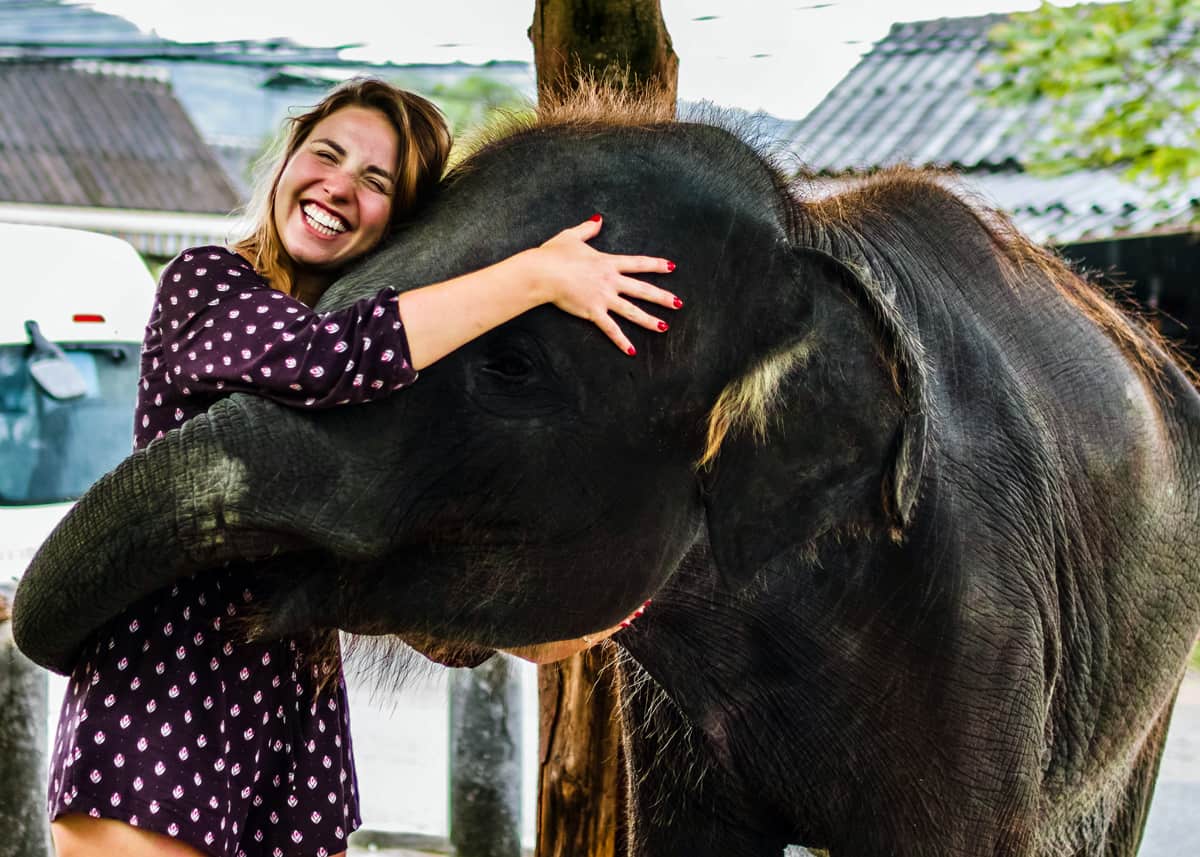
What’s adorable, gray, and wrinkly all over? Baby elephants of course! They are the cutest little bundles of joy you’ll ever see. Get ready to dive into some adorable videos and photos!!
Jump to baby elephant facts
65 Baby Elephant Videos to Make You Say “Awww!”
These awesome baby elephant videos are sure to put a smile on your face!
Baby elephants are very clumsy!
Baby elephant loves cuddles!
Baby elephant jumping and running towards tourists
Tons of adorable baby elephants
Baby elephant in the house!
Baby elephant gets over fear of water
Baby elephant throwing a “tantrum”
Baby elephants racing
Baby elephant cuddles their caretaker
Baby elephant’s first bath
Baby elephant wonders why girls nose & ears are so small
Baby elephant figures out his trunk
Baby elephants are so sweet!
Curious & very sleepy baby elephant
Shy baby elephant needs help to cross the road
Baby elephant in a kiddie pool
Baby elephant sneeze
Muddy elephant cuddles
Baby elephant chasing birds
Baby elephant playing with dog
21 Baby Elephant Facts
1. What do you call a baby elephant?
One baby elephant called a “calf” and more than one are called “calves.”
They keep the theme going with the males called “bulls” and females called “cows.”
2. How many babies do elephants have at one time?
Female elephants usually only have one baby at a time.
They’re big belly monsters that require a lot of time and energy to gestate, so more than one baby would be a lot to handle!
3. Can elephants have twins?
Yes. Elephants can give birth to twins, but it’s extremely rare, and they tend to be smaller than other calves.
Elephant babies weigh hundreds of pounds before they’ve even left the womb, and most mothers aren’t able to double that. Twins are smaller to compensate.
4. Why is it dangerous for an elephant to have twins?
The only thing more adorable than two floppy ears is four floppy ears. Despite their cuteness, however, twin elephants come with some serious disadvantages:
- They compete for resources. This is a particular problem with male-female twins. Male calves are bigger and have greater milk demands, so they can get aggressive when their sisters try to nurse. They’ll push them away and prevent them from suckling. Mom will have to wait until her son is sleeping or distracted to feed her daughter.
- Young calves are very vulnerable to predators. A group of lions can take down a healthy, full-grown elephant, so babies don’t stand a chance. With twins, there’s twice the risk of a predator nabbing them.
- They require a lot of energy from mom. In addition to carrying around massive fetuses, female elephants will need to nurse, shelter, groom and defend their calves after they’re born. They’ll get help from other female members in the herd, but it’s still a lot. It’s double the usual workload.
5. Can baby elephants walk from birth?
Kind of. They aren’t instantly mobile, but baby elephants can walk very quickly after birth.
It only takes them about an hour to stand and a few more hours to waddle around.
They need to be upright to nurse, so they master their legs as fast as they can.
6. How much do baby elephants weigh when born?
Newborn elephants usually weigh between 200 – 300 pounds.
This is just an average, however, because gender, species and gestation time can all play a role in the size of a calf:
- Males are usually bigger than females.
- Longer gestation times usually result in larger babies.
African elephants are also bigger than Asian elephants:
- African calves can weigh as much as 350 pounds after birth
- Asian calves usually max out at 200 pounds
7. Do baby elephants cry?
Yes. Baby elephants can make a variety of noises, including distressed ones that sound very similar to a cry.
The jury is out on whether they’re weeping as an emotional response or just making sounds to attract the attention of a caregiver.
8. How big are new baby elephants?
Newborn elephants stand around 3 feet tall. They weigh between 200 – 300 pounds.
They’ll grow even bigger once they start nursing, but as you can see, they’re gigantic right out of the gate.
9. How long does an elephant carry her baby?
If you thought that nine months was a long time to carry a baby, you might be shocked at the gestation period of elephants. They’re pregnant for almost two years!
Their official range is 640 – 660 days or 21 – 22 months, but calves can be born earlier or later depending on various circumstances.
Fun fact: the gestation period of elephants is the longest of any land mammal. While they’re outdone by certain sea creatures, they’re far ahead of other warm-blooded mammals like giraffes (400 – 460 days), camels (410 – 430 days) and rhinos (450 – 470 days).
10. Are baby elephants blind?
No. This is a common misconception about baby elephants.
Their eyesight isn’t the greatest, so they’ll stick close to their mother for a few days after birth, but calves aren’t actually blind.
They just rely on their other senses more while their vision is still developing.
This is why you’ll see videos of newborn elephants snuffling or nuzzling around their mothers. They’re using sound, smell and touch more than eyesight in those first few days.
11. How long are baby elephants dependant on their mothers?
Baby elephants are dependent on their mothers for many years. They start to gain independence when they become sexually mature at 8 – 13 years old, but they might not leave the herd until they’re 16 – 18 years old.
Females might not leave the herd at all. It’s common for them to stay with their mother’s herd for their entire life. Males tend to be the migrant ones.
12. What’s the delivery process like for an elephant baby?
Female elephants can be in labor for anywhere from a few hours to a few days. When it’s time to welcome their babies to the world, they push them out and let them drop 2 – 3 feet to the ground.
The calf is safely cushioned by a balloon-like amniotic sac, so it isn’t hurt, and the sac ruptures on impact so that the calf can move around right away.
Mothers typically deliver the placenta (or afterbirth) a few hours after the calf. As with other wild animals, the placenta is eaten to prevent it from attracting predators.
13. Would a mother elephant reject her baby?
Wild elephants almost never reject their babies.
Even in cases of a painful or difficult birth, the other females of the herd will be there to soothe her, and they’ll take care of the calf until she’s ready to bond with it.
It isn’t uncommon for a new elephant mom to need an adjustment period, but with the help of her herd, she’ll overcome it.
Things are much different in captivity. Without her midwives, a scared or distressed elephant mom might not know how to cope with her emotions.
She might lash out and hurt her baby, or she might reject its attempts to nurse and effectively abandon it.
Zookeepers can remove the calf and try to reintroduce it once the mom has calmed down, but their efforts aren’t always successful.
14. Do elephants eat their babies?
No! Elephants don’t eat their young. They consume the afterbirth to hide it from predators, but that’s it!
They might also eat leaves and twigs that were soaked in amniotic fluid, or they might move around some dirt with their trunks to cover any wet spots on the ground.
These scents are flashing neon signs to predators that a vulnerable newborn is close.
15. Why are baby elephants born at night?
You might have heard that 99% of elephant babies are born at night.
It’s another way of avoiding detection from predators: not only does the darkness hide them, but it also gives them a few uninterrupted hours to stand up, take their first steps, and learn how to nurse.
Some female elephants will resist giving birth during the day or if it’s too close to dawn. It’s a survival instinct for both themselves and their calves.
16. Do elephants nurse their babies?
Yes. One of the distinguishing characteristics of mammals is the need to nurse their young, and elephants are no exception.
Females produce milk for their calves, and the calves nurse while standing upright. It would be too labor-intensive for mom to lay down and get up every time!
17. Do baby elephants use their trunks to nurse?
No, elephant calves use their mouths to nurse. They don’t learn how to control their trunks for several months after birth.
Much like human babies figuring out how to suck on their toes, baby elephants have to play around with their trunks before they get used to them, as you saw in the videos at the beginning.
18. How much milk does a baby elephant drink a day?
Baby elephants drink about three gallons of milk per day.
Elephant milk contains a lot of nutrients, especially protein, so it’s important for calf development.
Fun fact: elephant milk has 100 times the protein of cow milk!
19. What do baby elephants eat?
Calves live off their mother’s milk for around six months. After that, they start using their trunks to forage for grasses, leaves, plants, and fruits.
They’ll continue to nurse for several years even after they learn how to eat solid food, but the milk will be a supplement to their diet instead of their main source of survival.
The exact nursing period for a baby elephant will vary. Some might be fully weaned after three or four years; others might nurse for close to a decade. Elephants aren’t fully independent until they’re teenagers.
20. Do baby elephants suck their thumbs?
No. Elephants don’t have thumbs, but one of our favorite baby elephant facts is that they do something remarkably similar to human infants: they suck on their trunks.
They put the end in their mouth like a thumb or a pacifier. Some people think that it’s an exercise in motor control; others think that it’s just a playful or absent-minded gesture from a baby.
Either way, it’s extremely cute!
21. How are baby elephants raised by the herd?
As you’re probably aware, elephants are highly social animals. They have complex emotions and relationships, and they form strong bonds with their herd.
Baby elephants get a lot of love from both their own mothers and the mothers of other calves in the herd. It’s a communal effort to raise their young; baby elephants are fed, watched, defended and socialized by moms, aunts, sisters, cousins, and grandmothers.
When a female elephant goes into labor, other females gather in a protective circle around her. When a new calf is born, they’ll raise their trunks and bellow in celebration.
As the calf grows, they never lack for love. Female elephants are known for their affection, and they shower it on their little ones in recognizably human ways.
For example, they use their trunks to “hug” and “kiss” their babies, and they snuggle with them as they sleep. These behaviors are observed in both biological mothers and adoptive mothers, so the relation isn’t an issue. If there’s a baby elephant who needs love, someone in the herd will take care of it!
Big Babies!
We hope you have had fun learning about adorable baby elephants and watching them! What did you learn today? Did we miss something? Is there a video we should include? Let us know in the comments!
Do you love elephants? Check out our post on some awesome elephant gifts!
Drew Haines is an animal enthusiast and travel writer. She loves to share her passion through her writing.
She graduated high school at sixteen and started her own business, Everywhere Wild Media. And she runs Everywhere Wild and JustBirding. She also guest blogs on Storyteller.Travel
She lived in Ecuador for 6 years and explored the Galapagos Islands. Currently based in N.S., Canada.

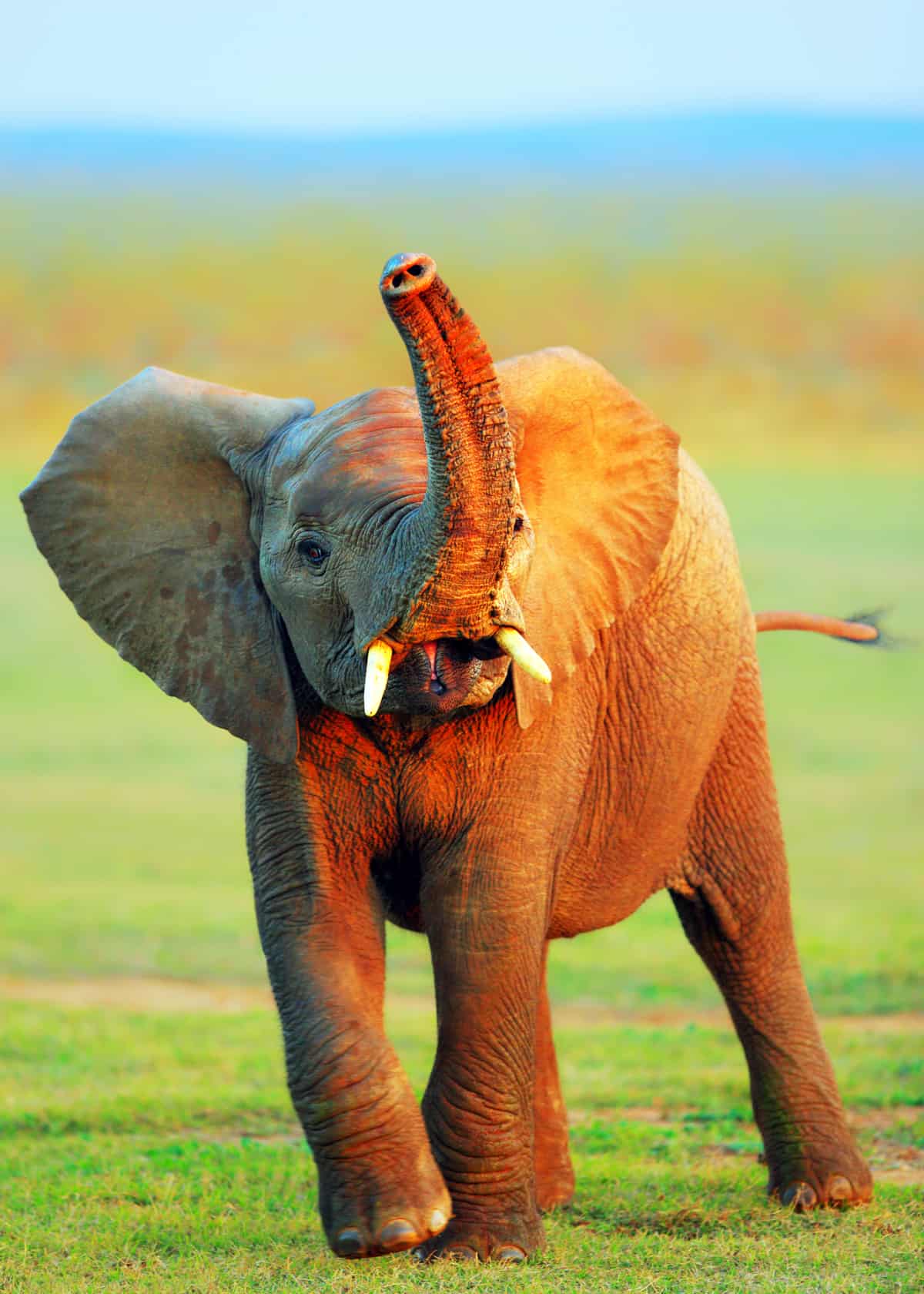
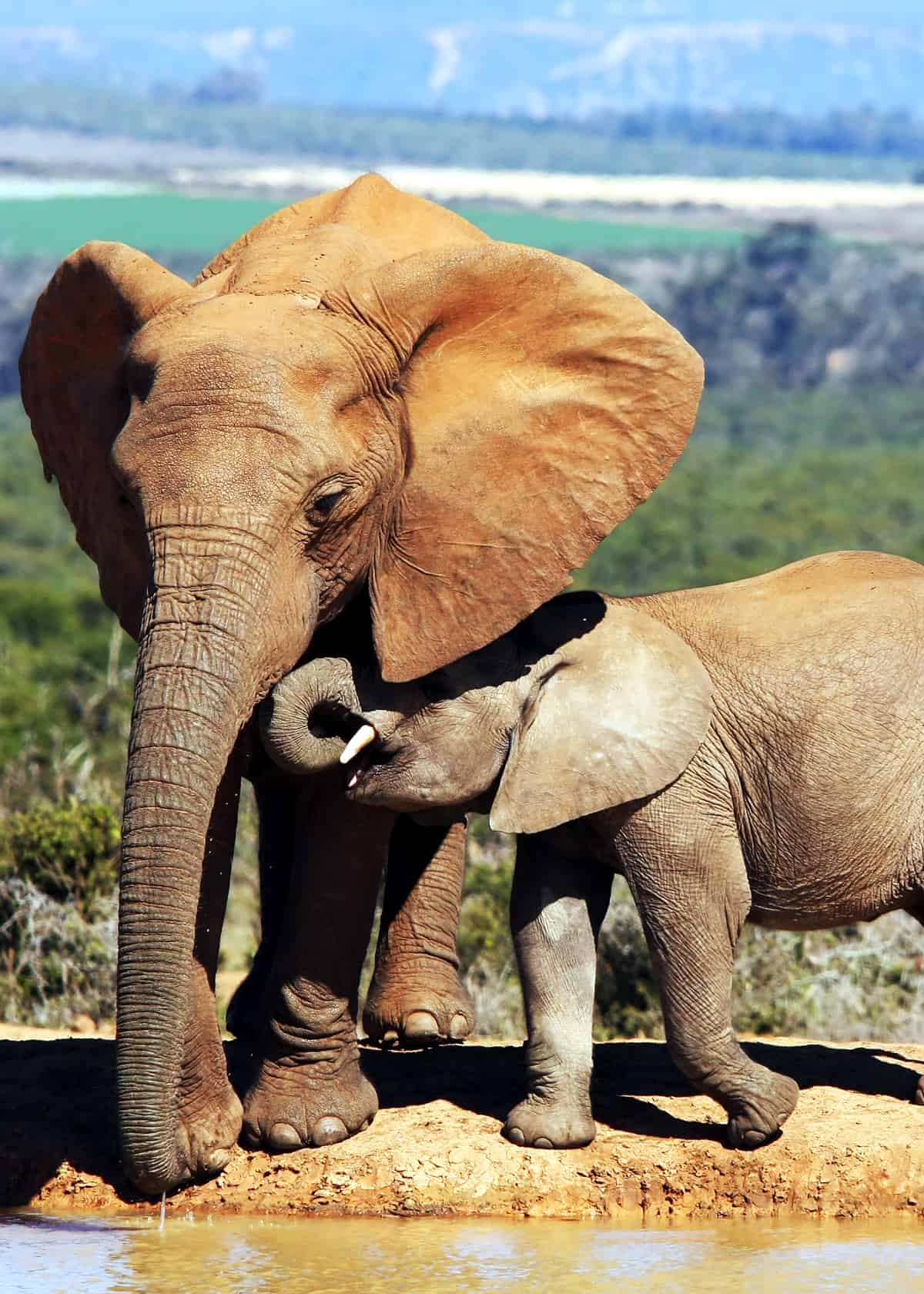
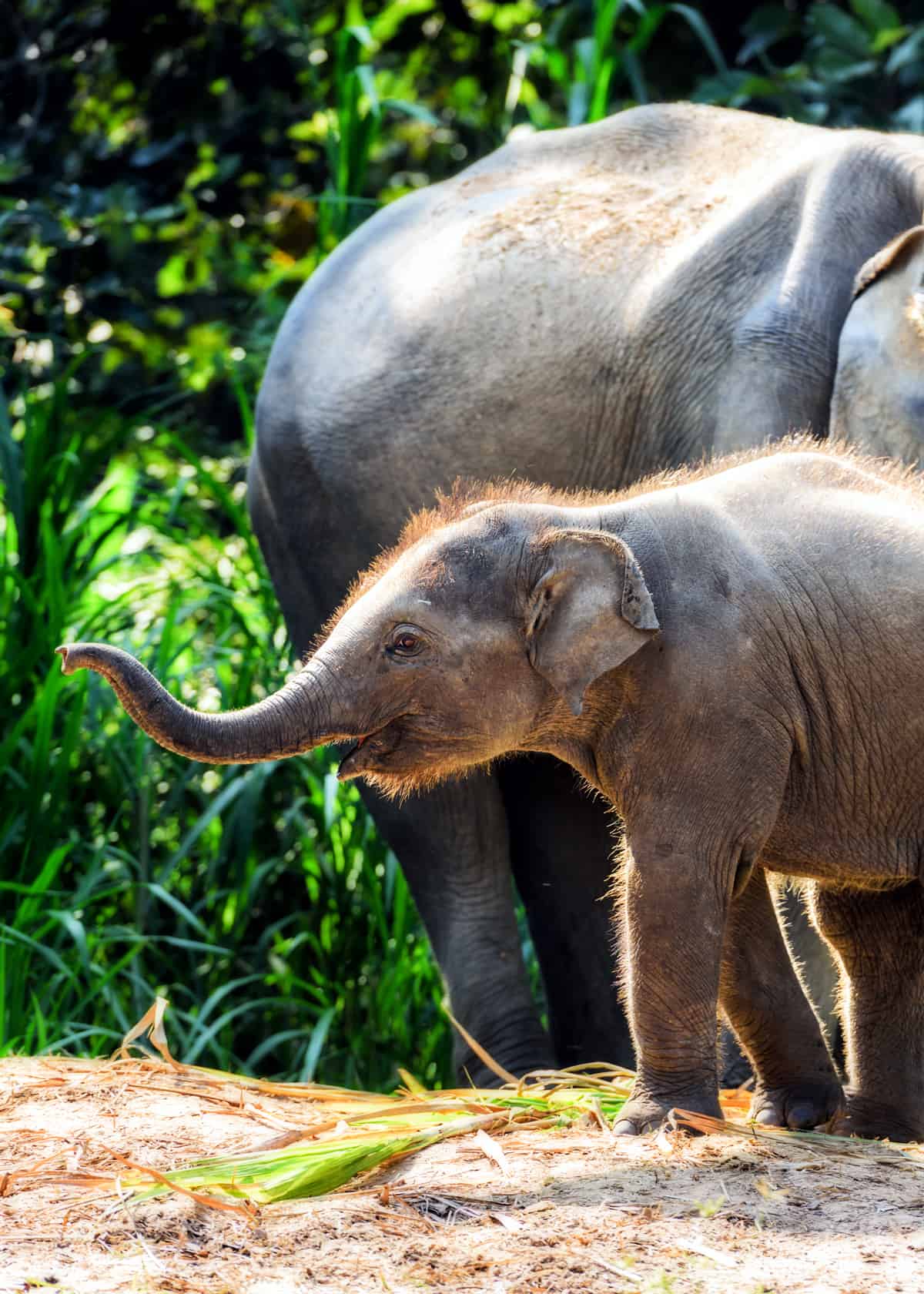
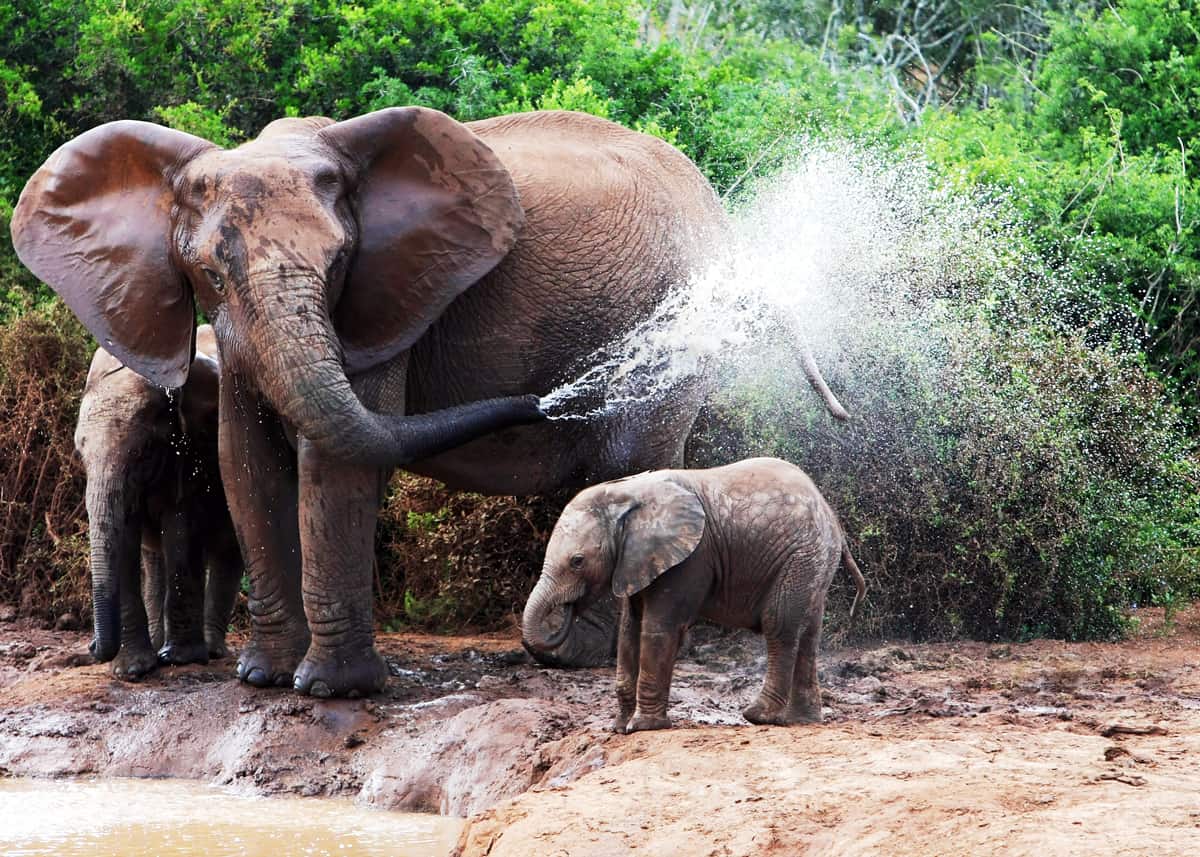
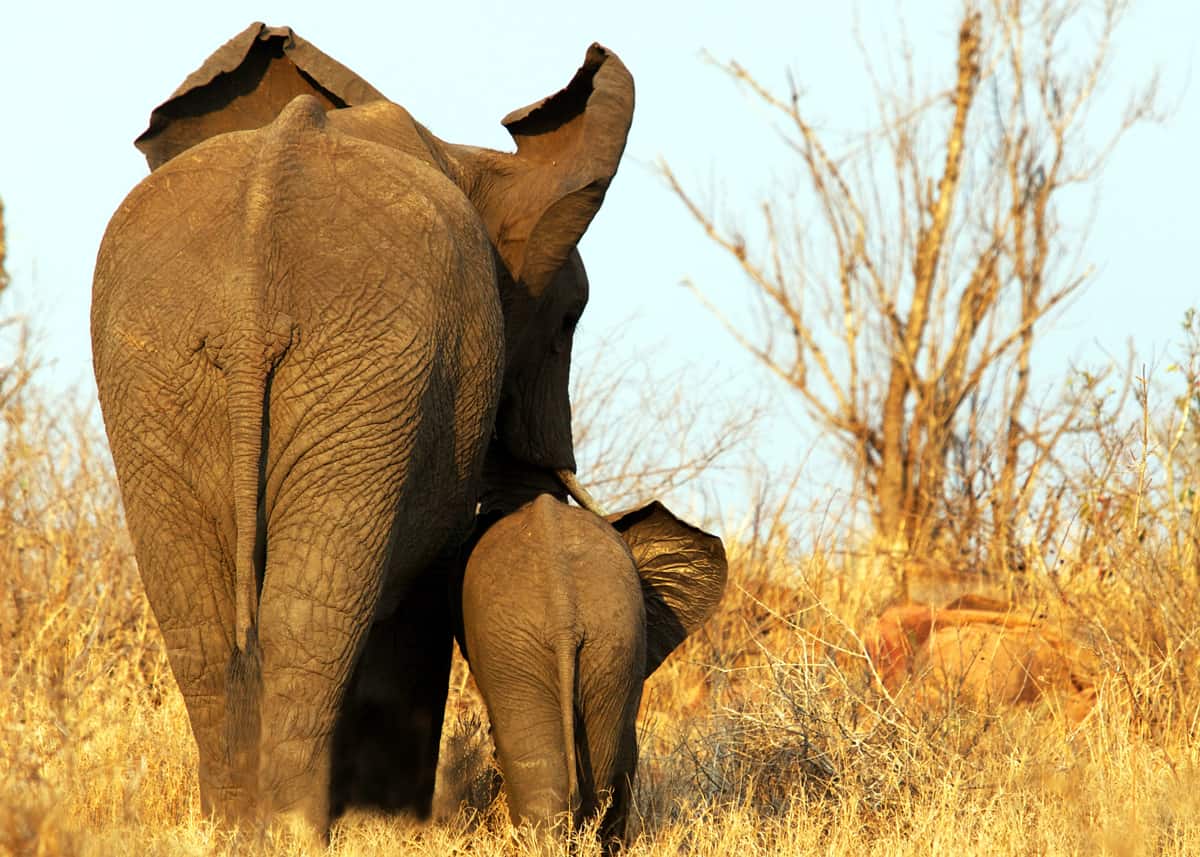
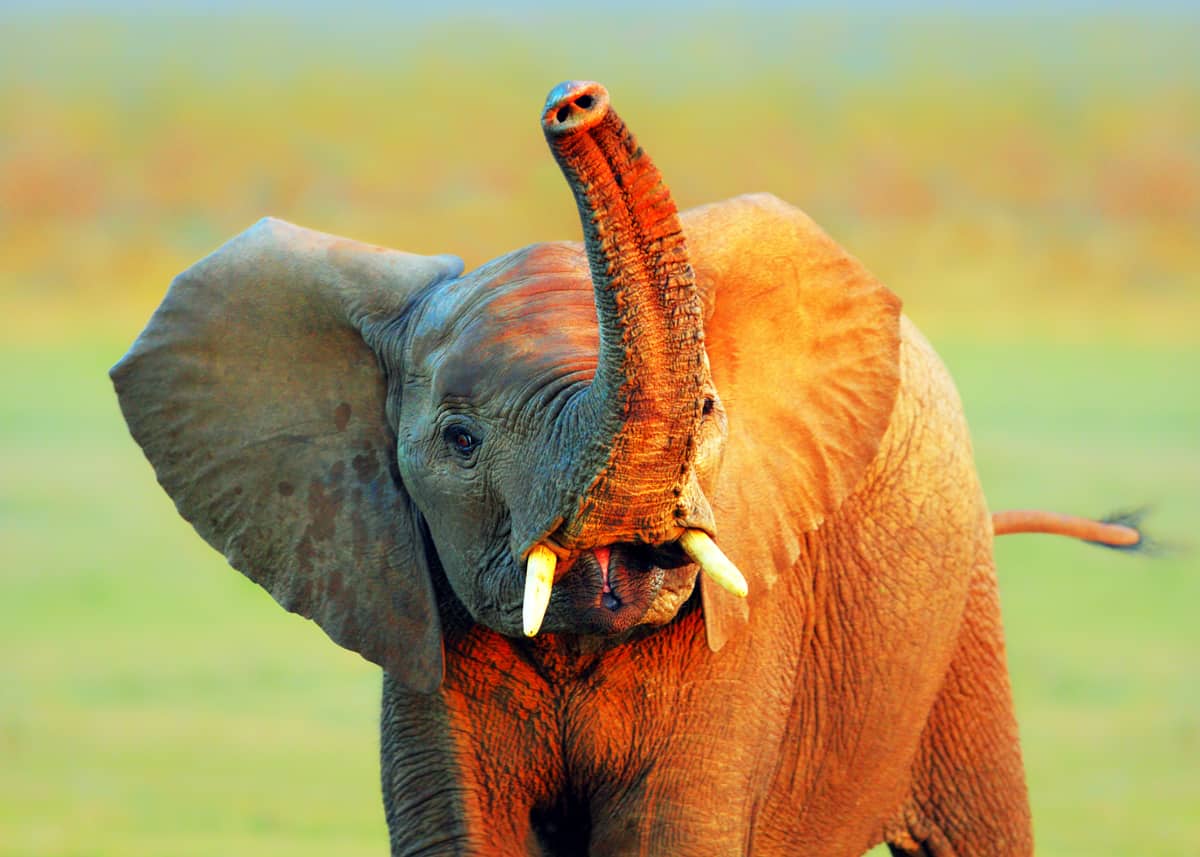
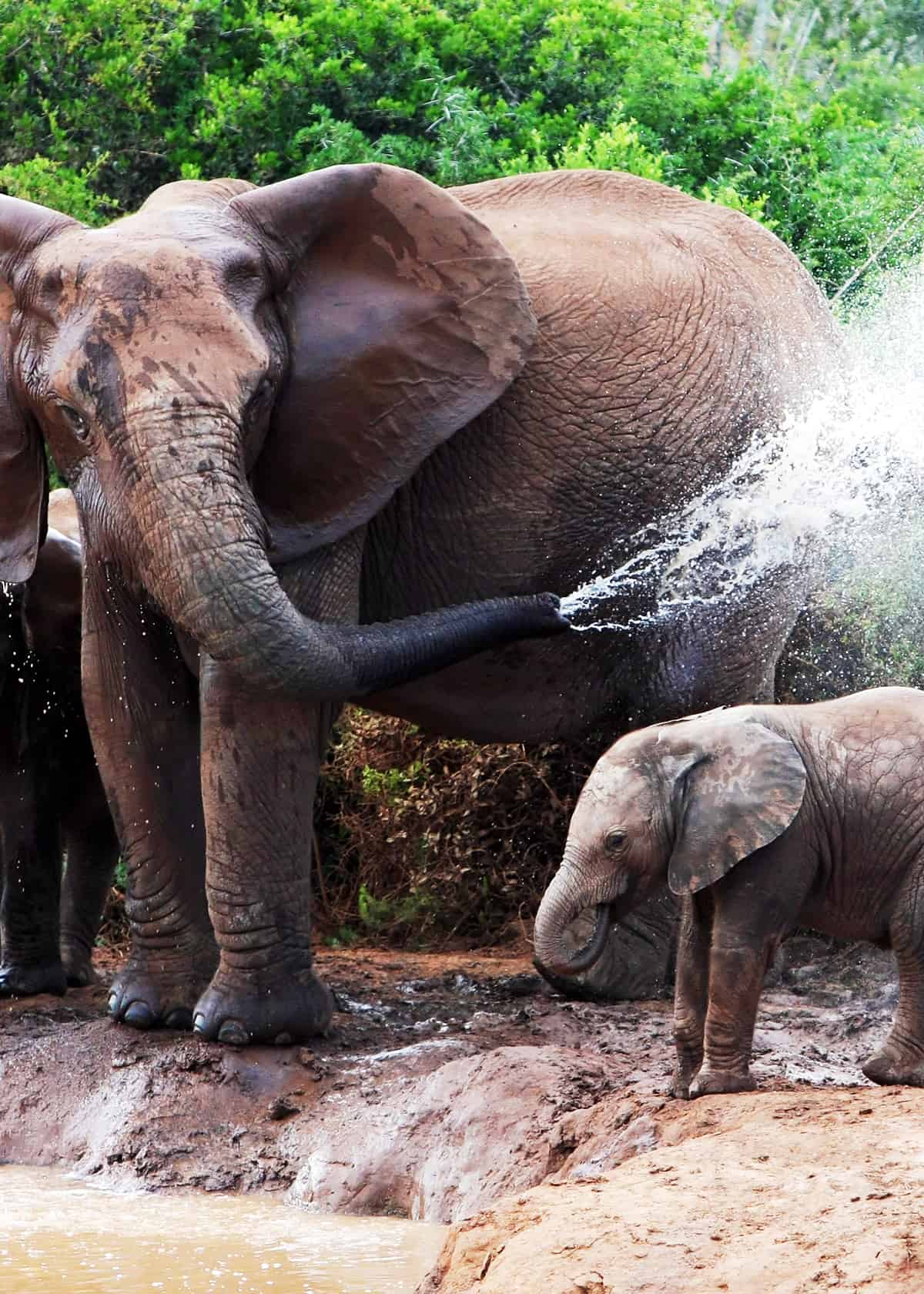
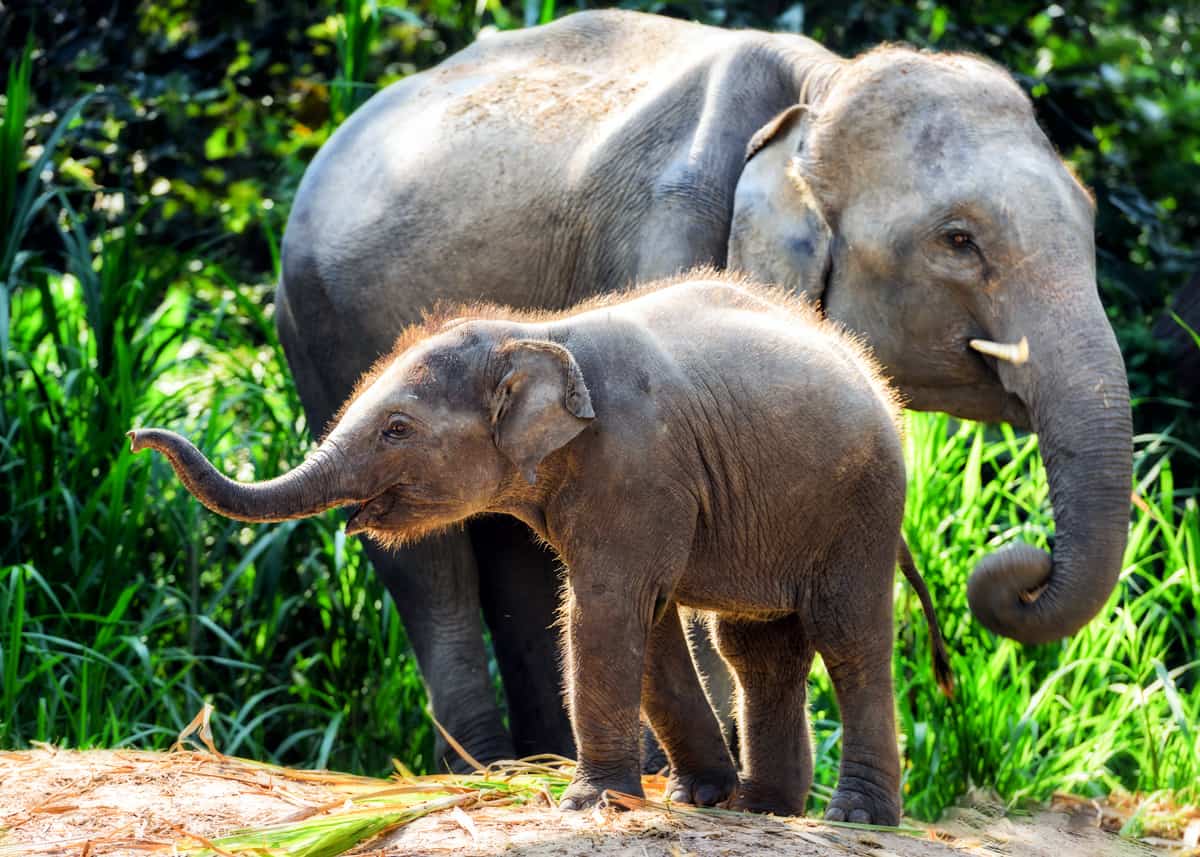
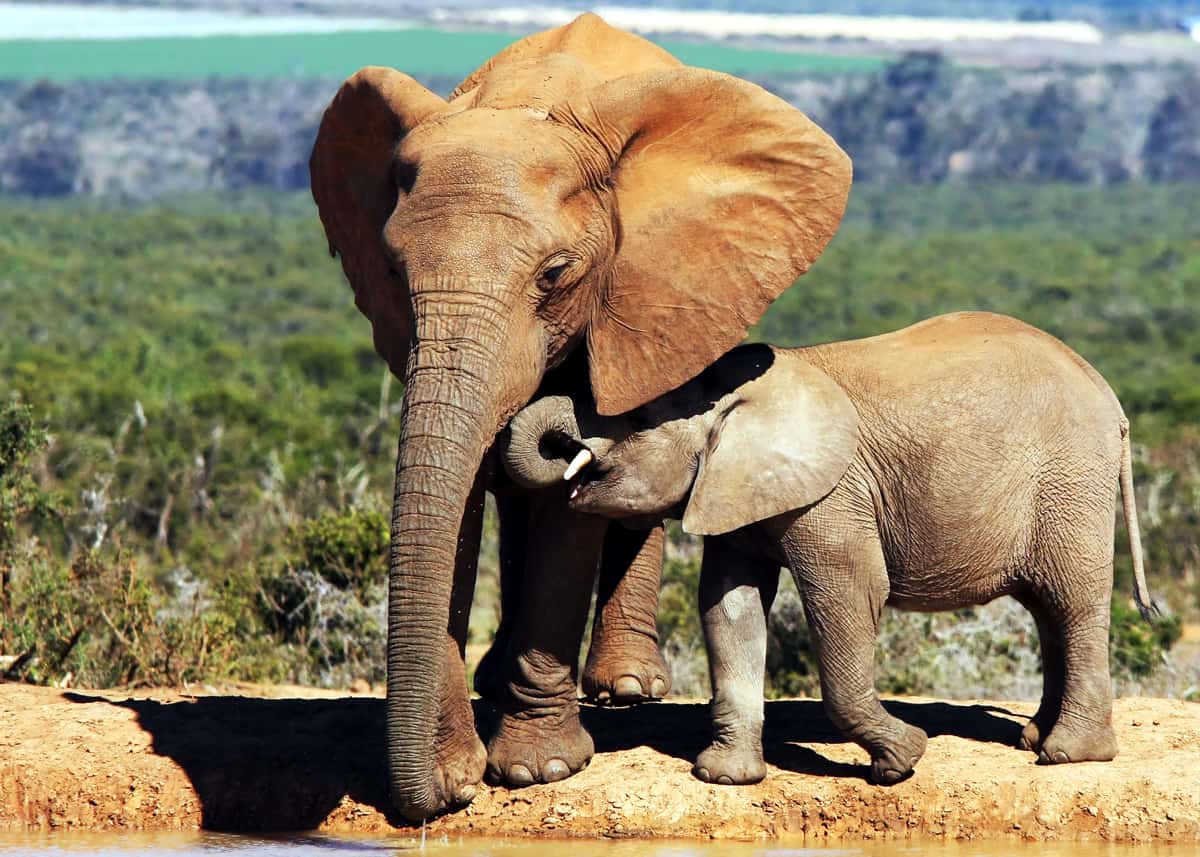
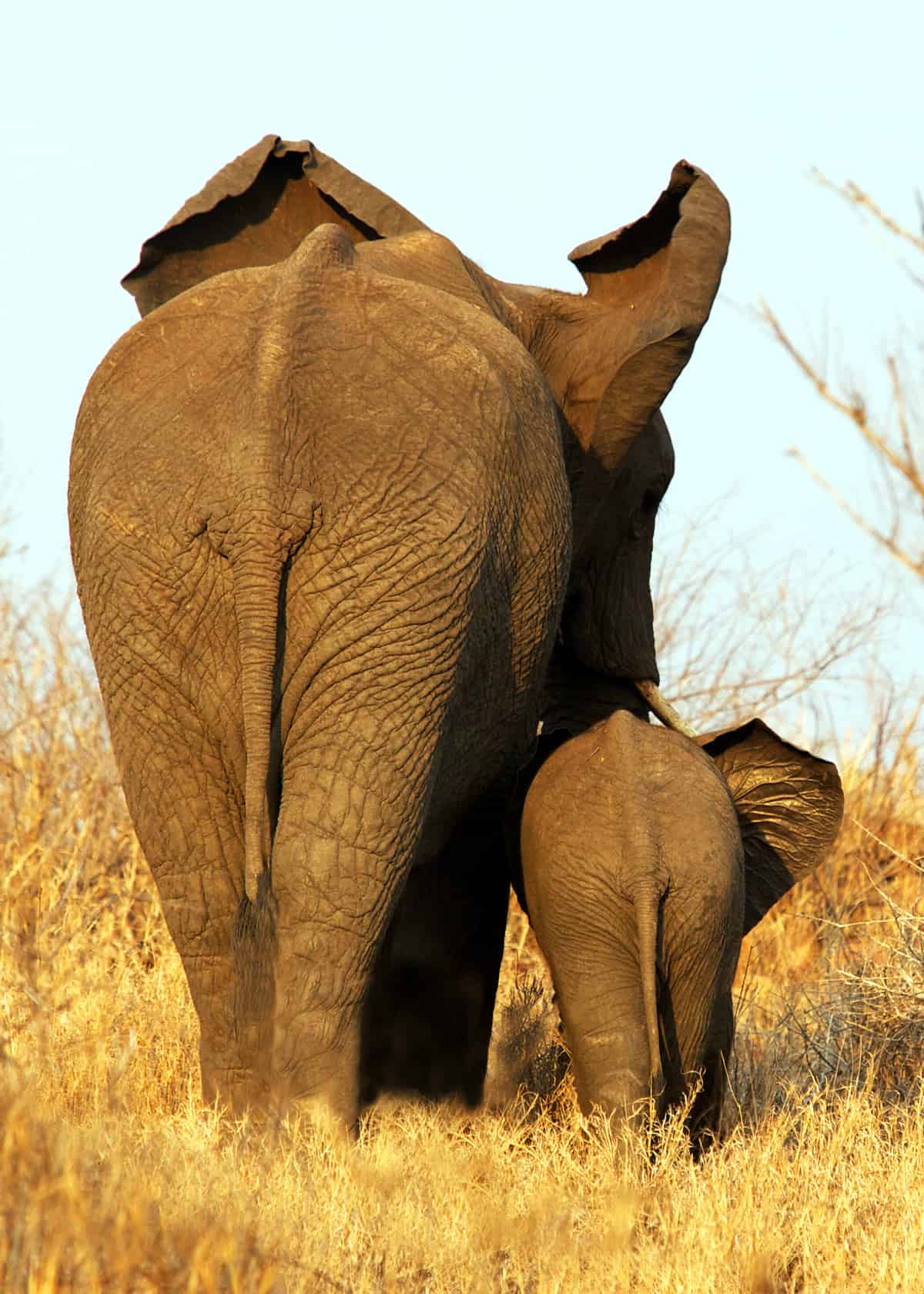
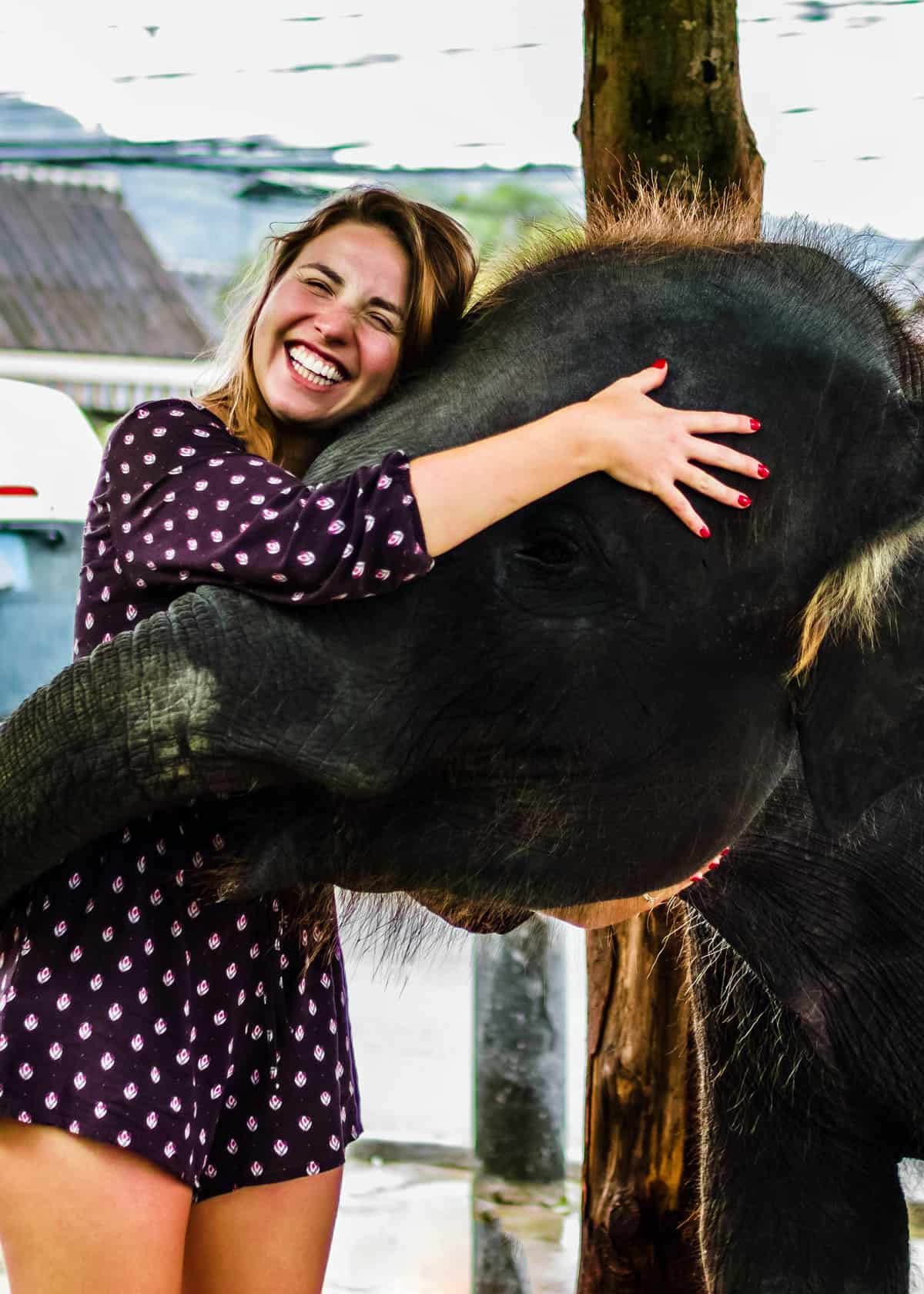
Saba Ciani-Dausch
Wednesday 16th of December 2020
Very funny!
Liz
Tuesday 24th of December 2019
So enjoyed your collection of baby elephant videos. I actually came looking for jewel bugs.. but the baby elephants seduced me! back to my jewel bug hunt. Great website. Well done. Very enjoyable.